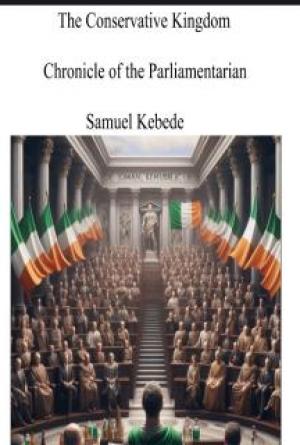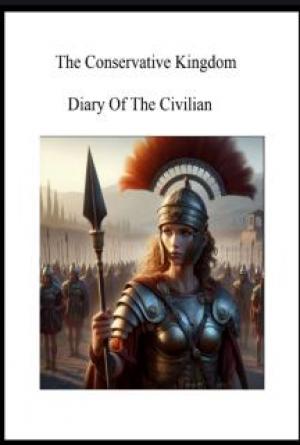CHAPTER XXIV.
THE PLOT THAT FAILED.
It was half an hour in advance of the time when Gorse was, according to agreement, to return to Lorton the silver taken from Mr. Field’s house.
Deep in the shadow of a doorway near the entrance to the “fence’s” quarters stood the figure of a man. It was Nick Carter.
Around the corner, within signaling distance, were Chick and Patsy and six police officers.
Twenty minutes passed.
Suddenly the door of Gorse’s place opened and Gorse himself stepped out.
Nick drew back further into the doorway, but he kept his eye on the man, and noticed that he carried a large and what seemed to be a heavy bundle under his arm.
He passed quickly down the street, glancing furtively behind him from time to time.
But despite his caution he was closely shadowed by Nick, who had taken up the trail after giving an odd whistle that could be heard around the corner.
Several blocks were passed, the man in front carefully avoiding the well-lighted streets.
Finally he paused before the door of a house in a narrow little street, and started to ascend the steps.
He had scarcely done so, however, when he felt a hand clasped on his shoulder and, looking quickly around, he found himself looking into the barrel of a gleaming revolver.
He gave one look at the man who held the weapon and his face turned to ashes as he gasped:
“Nick Carter!”
“Yes, my man. It’s Nick Carter. No noise, now. Come this way lively.”
Gorse was too much surprised to refuse, and before he knew it he was handcuffed and led back the way he had come.
The two did not go far before Nick stopped abruptly on hearing a slight noise ahead of him. It proved to be his assistants and the police approaching, and turning his prisoner over to them, he told them to await his signals opposite the building he had spotted.
Nick now proceeded toward the house Gorse had attempted to enter. He was confident he was about to make some important discoveries, and his face wore a smile of satisfaction at the clever way he had tricked the proprietor of the “fence.”
Nick stealthily approached the basement door and listened a few minutes to make sure no one was in the hallway within.
He cautiously tried the door and, as he expected, found it locked.
The lock that secured it proved to be one, although of a pattern supposed to be complicated, very easily picked.
Less than ten minutes’ work sufficed for him to master it, and he was free to go in.
It took but a moment to see that no one was on the basement floor.
He took no step in the direction of the upper part of the house until he had by listening assured himself that nobody was in the immediate vicinity of the head of the stairs.
On reaching the head of the stairs he paused again.
The silence that hung over the interior of the house was like that of the tomb. It was unbroken by even the slightest sound.
Going softly along the hall he finally reached a door, which he judged to be that opening on the street.
This gave him his bearings, so to speak, and he went back along the hall. He paused before a door leading into one of the rooms.
From within came no sound.
The detective told himself:
“It is deserted, and if I can manage it I mean to go in and have a look around.”
To his surprise, in trying the door, he found that it was not locked.
Softly pushing it open he entered.
There was a lighted lamp in the room.
He had not been given more than two minutes to look around when he heard steps approaching.
At once he cast his eyes about him in search of some place in which he could conceal himself.
The only place that offered was a space behind the sofa. Poor as this might prove, it was all that could be found, so he lost no time in taking advantage of it.
Just as he settled himself comfortably the door of the room opened and two persons entered.
One was a woman.
The woman’s first words were:
“If I had done such a thing I would never have heard the last of it!”
“That would depend on circumstances.”
“Indeed it would not. If I had gone away from this house, leaving it unguarded and unlocked you would have threatened to cut my throat if I was ever as imprudent again.”
“Let it drop! I’ve heard enough.”
“All right. Is everything moving well?”
“Tolerably so.”
“Have you been out to-day?”
“Yes.”
“What was the result?”
“I could not learn anything.”
“Which means that we are practically balked.”
“I suppose so. Until it can be conclusively shown that the old man is dead, we have mighty small show of handling a copper of his money.”
The woman said in a bitter tone:
“I don’t know as I am sorry.”
“Why not?”
“Because I don’t like a part of the game.”
“You mean my marrying the girl?”
“I do.”
“Pshaw! That should not excite your jealousy! There will be nothing of it, except to play the part of a loving husband until I get the ducats, and then I’ll skip and come back to your arms.”
“Of course!”
“Business, my dear—simple business, nothing more!”
“That’s what you would have me to believe.”
“Because it is absolute truth. In all the world you are to me the one and only woman.”
Although Nick Carter could not see what was done, his ears were sufficient of a guide to the truth to inform him that the man at this point put his arm around the woman and kissed her affectionately.
It was all that Nick could do at this time to prevent gritting his teeth so that they would hear. It fairly made his blood run cold to hear that man talk so coolly of the foul wrong that it was intended should, through him, befall a young and innocent girl.
Like a revelation had been these few words that he had thus far overheard.
That the woman was mollified by his caresses was shown by the tone of her voice when she next spoke.
“I am sure, Demas, that you do not care for any other woman, and yet at times I cannot think but that you must, and it drives me nearly mad with jealousy. I long thought that you cared a good deal for this namesake of mine that you used to go to see once in a while.”
“Pish! Helen; I never cared a copper for her. But, when I saw that she was fool enough to fall in love with me, I believed it would not be a bad idea to keep it alive, for even then the plot we are working out had begun to frame itself in my mind.
“I never believed, as you did, that she was really the daughter of Field.”
“That was the result of your jealousy. It made you nearsighted where she was concerned. I wish I was as sure of some other things as I am that she is really his child.”
“You think that she will marry you for the asking?”
“If I had not been sure of it, do you suppose that I would have gone into the scheme under the circumstances that I have? Of course I am sure of it.”
“How can you be?”
“How do I know that you love me and are the best and most daring woman in the world, where my best interests are concerned, my dear?”
The woman laughed. She said, returning to a subject previously touched upon:
“Well, what about Field?”
“I can’t make it out.”
“You were up there to-day?”
“Yes.”
“And learned nothing?”
“Just precisely that. Appearances are that he was taken to the river bank and away in a boat.”
“Who could have done it?”
“I don’t know. I can’t even guess.”
“Nor what the reason was?”
“No. If I could once get at a reason I might spot the person who carried Field off. What the fellow wanted with his dead body, unless it was to play counter to me, I cannot understand.”
“That’s what it looks like.”
“Yes, that and nothing else, but I can’t think of anybody who would be likely to be in the game, as nobody knew what I was up to.”
The woman’s jealousy led her to revert to that other Helen again, saying:
“You will not think of marrying her until it is settled that she is dead certain of getting the money as well as the credit of being old Field’s daughter?”
“Of course not. But, hark!”
While the man and the woman were listening to some sound that had reached their ears the detective was busily thinking.
What he had heard was a revelation to him in every sense of the word.
While in some unimportant particulars it proved his first theory wrong, in the main it supported it amply.
Holding the key to the mystery now, he saw how it had all been brought about, save for one point. This was the precise motive that had led to Mr. Field being carried away.
Nick now understood precisely the relation that was held by Helen Doane to this man.
In some way he had gained an inkling of whom she really was, but instead of telling her had kept it to himself, biding a time when the fact could be made to turn to his advantage.
At last he had arranged a scheme for doing this.
Ostensibly leaving New York for a considerable length of time, he had gone only a short distance. On the day preceding the crime he had returned to the city, and had mailed the forged letter to Helen. That night, accompanied by an accomplice, he had entered Mr. Field’s house, and the gentleman had been attacked and left for dead. Lorton would not have left, unless he believed him dead, since his death was a necessity of his scheme. If it had not been, and Helen was really the missing child, then he might have returned her without harming Mr. Field. This would not do, however, as under those circumstances Helen would not be permitted to see and marry him, in which way alone could he hope to get his fingers on the Field millions. After he had departed, some one had carried away the unconscious form of the millionaire, and the better to cover up his tracks this second crook had resorted to the spilling of the blood down the lawn walk and to the river front, while in fact he took Mr. Field into a light wagon and drove him away.
That was the case summed up in a nutshell. It only remained to learn who this second crook was and when he had stolen Mr. Field’s body.
The detective had just about got this straight in his mind when he heard the woman say:
“I think it is Luke coming.”
The next minute there came a knock at the door.
The man who entered was addressed as Luke.
When the door was closed, Luke inquired:
“Have you learned anything?”
“No.”
“That’s funny.”
“So it is. Have you been out looking around?”
“I have.”
“And you could not learn anything about Field?”
“No.”
At this juncture came a ring at the bell.
The woman said:
“That’s the front doorbell! I wonder who it can be?”
Lorton rejoined:
“I think that you had better go.”
The woman arose to go and answer the ring.
She returned shortly after, ushering in a man who said:
“How are you, Lorton?”
At the man’s first words Nick could hardly repress a chuckle, for he recognized his voice as that of his assistant, Patsy.
“How are you? What are you doing here?” returned Lorton.
The woman put in with:
“He’s come from Gorse, he says.”
“From Gorse?”
The man said:
“Yes, he sent me.”
“What for?”
“To bring back the silver you left with him last night. He says he’s been warned and don’t want anything to do with it.”
“Tell Gorse he’s a fool. The melting pot would fix it in half an hour.”
“He don’t think so.”
With a sneer in his tone, Lorton said:
“Does he expect to get his money back?”
“I guess not. He’s glad enough, I take it, to get rid of it so cheaply!”
Starting up in surprise and alarm, Lorton demanded:
“What do you mean?”
“Nothing, only that the old man seems to be pretty well scared about the stuff for some reason and wanted to get it safely out of his hands. I don’t know for sure, but I think it has been traced that you were concerned in the Field matter, and the ‘boodle’ to him.”
“Nonsense!”
“Not at all! You know that you fixed the old man, and it is possible, I think, that somebody tumbled to you.”
“See here, it will be wisest for you to keep a still tongue. You’re letting it wag a trifle too freely for your best good health.”
“That’s all right. You don’t think I would go around blabbing all I know and all I guess, do you? I speak of it to your face as a fact, and would not have done it if you hadn’t invited it.”
“Well, they can’t say I murdered the old man unless they find his body.”
“But you did, all the same!”
“Yes, and I’ll murder you, too, if you don’t get out of here in a hurry!”
“I rather think not.”
As the disguised young detective gave this reply Nick Carter arose from his place of concealment and echoed:
“I rather think not!”
Turning in the direction of this new speaker, Lorton uttered an oath and demanded:
“What is the meaning of this?”
Nick smilingly answered:
“I will show you!”
As he spoke he ripped off his disguise with one hand, while with the other he snatched out a revolver and brought it to bear on Lorton.
The woman was the first to recognize him. She gasped:
“Nick Carter, the detective!”
Bowing to her, he returned:
“At your service, madam!”
Then to the man who had brought the silver:
“Your disguise is admirable, Patsy. Your own mother wouldn’t know you.”
The woman shrieked:
“It is all clear now! We’ve been trapped!”
And, in an excited tone, she added:
“The trap—the trap! There are only two of them! We ought to be able to master them!”
“Only two of us, eh?”
Saying this, Nick drew out and blew a whistle.
With a thunderous crash the front door was carried from its hinges and a full dozen of policemen rushed into the room.
The game was up.
The conspirators saw it at a glance.
Just after the handcuffs had been placed on the wrists of the two men there was a bustle at the door, and then Mr. Field stood before them.
At sight of him both men turned pale, while even Nick started with surprise.
Looking at Lorton, Mr. Field said:
“That is the man who struck me!”
And turning to Luke:
“That is the man who carried me away from my house in an unconscious condition and has kept me prisoner ever since.”
The eyes of Lorton and Helen fairly flamed with anger when these words were uttered.
The former hissed:
“So you turned traitor, did you?”
The man sullenly returned:
“Yes, and for good reason. You were plotting for a big stake and only wanted to give me a paltry ten thousand. When we looked at Mr. Field just before leaving the house I saw that he was not dead, and, after we parted, I returned and carried him away, knowing that while I had him in my hands I held the power to make what terms I pleased. Now the plot has failed!”
The answer fully explained the last thing that was a mystery to the detective.
After the two men and the woman had been taken away, Nick turned to Mr. Field.
“Permit me to congratulate you. I thought you had fallen into our old friend Greer’s hands.”
Mr. Field extended his hand and caught Nick’s in a grateful clasp, while he asked:
“Who called you in, Mr. Carter?”
“Mr. Barnes.”
“My blessings on him! He’s a manly, noble fellow!”
“Now, can you tell me anything about the occurrences of the night on which you were attacked?”
“I cannot tell you much.”
“You did not go to bed?”
“I did not. I remained up thinking over some matters and arranging the details of a certain matter when I was suddenly made aware of the proximity of somebody by hearing a suppressed cough. I turned around and saw a man close to me, with a club in his hand, and was on the point of calling out when struck. The club hit me squarely on the head and I knew no more until I found myself in the arms of a man in a narrow, dark hall. Recovering consciousness then, I began to struggle with him, and, although I did not succeed in getting away, I gave him a great deal of trouble. He got the best of me by striking me again, when my senses once more left me. In that condition I must have been carried upstairs, for I imagined the dark hall to have been that of this house, and, on my showing signs of returning consciousness, the man drugged me. All this last I recall in a dim and confused way only.”
Questioned as to how he escaped from his captor, Luke, Mr. Field said the man had evidently drugged him every time he left him alone, for the hubbub caused by the detective’s entrance had awakened him from a deep stupor, and when he arose from the couch on which he was lying, there was no one to dispute his escape. His captor no doubt thought the drug more powerful than it was.
Despite Luke’s villainy, Nick could not but admire his courage in secreting his prisoner in the very house his pals were occupying.
Nick now asked some questions that went to prove the truth of the story told by Timon, the butler, in whom Mr. Field reposed the utmost confidence.
The replies satisfied the detective that the servants in the house were guiltless of any participation in the crime.
Nick then said to him:
“Excuse me, Field, if I refer to a period in your past that must arouse sad memories, for I have a special purpose in view in doing so. I do not refer to your previous similar experience, but to a fact concealed by you from the world. You married after your return to this country, and had a child?”
“I had.”
And he sadly added:
“But I drove them from me.”
“You would like to recover them?”
“I would give half my fortune to be able to do so.”
“Have you never been able to learn anything of them?”
“I have not.”
“Not of your wife, or of both wife and daughter?”
“I mean both.”
“Then you do not know that your daughter is alive?”
“I do not.”
“And you did not, the day before being paid that burglarious visit, write a letter to her?”
“How could I when I did not even know that she was alive?”
The detective smiled with triumph, while a great look of relief spread over his face.
Nick’s next step was to acquaint his old friend with the fact that he would find his wife and daughter at his home.
Nick said:
“Wife and daughter!”
He had no hesitation now in saying the latter, for Helen Doane stood proven as an innocent party in a dark transaction. And yet the circumstantial evidence against her was sufficient to have convicted her.
It is needless for us to go into details of the happy meeting that followed between the members of the reunited family, of how Mr. Field begged for forgiveness, and was forgiven; of how his wife proved that she still loved him; of how happy they were in having found so good and true a daughter; of how they lived so happily afterward in each other’s society.
Helen Field, as she now was known, explained to Mr. Barnes on a subsequent occasion how it was that, being of a somewhat romantic turn of mind, and feeling that the service done her by Lorton was of signal value, she had determined to place her life at his disposal in return for having, as she painted it, saved it for her. It was this that had led her to refusing Barnes’ suit.
After listening to this naïve confession he did just what any sensible man would have done in his place—took her in his arms and kissed her over and over again, and ending up by a request that she would name the “happy day.”
And, as all obedient girls do, she “referred him to her father.”
Father in this case was not a stern tyrant, and acquiesced heartily and gave them his blessing—and a check for a hundred thousand the day they were married!
Demas Lorton, Luke and Helen Lorton were tried, convicted and sentenced to prison for the longest possible terms.
Nick’s reawakened anxiety in regard to Mr. Field was, long before this happy event, finally and fully relieved.
Two weeks after Lorton’s trial and sentence, an unknown man was killed by a fall from the elevated railroad station at Thirty-fourth Street.
Nick Carter happened to go to the morgue on other business, and the keeper, knowing his familiarity with members of the criminal class, invited him to view the body.
Nick identified it at a glance.
It was Elmer Greer!
“So,” thought Nick, “this is his end. It’s funny! I never knew a criminal who led a happy life. From the first fall, jail and the hangman’s noose haunt their waking and their sleeping hours. If they don’t die in jail or the poorhouse, they meet a fate similar to this of Greer’s. It’s incomprehensible to me why men should ever take up a life of such misery and unhappiness!”
And the great detective shook his head.
For once he had propounded a question he could not answer!
THE END.







